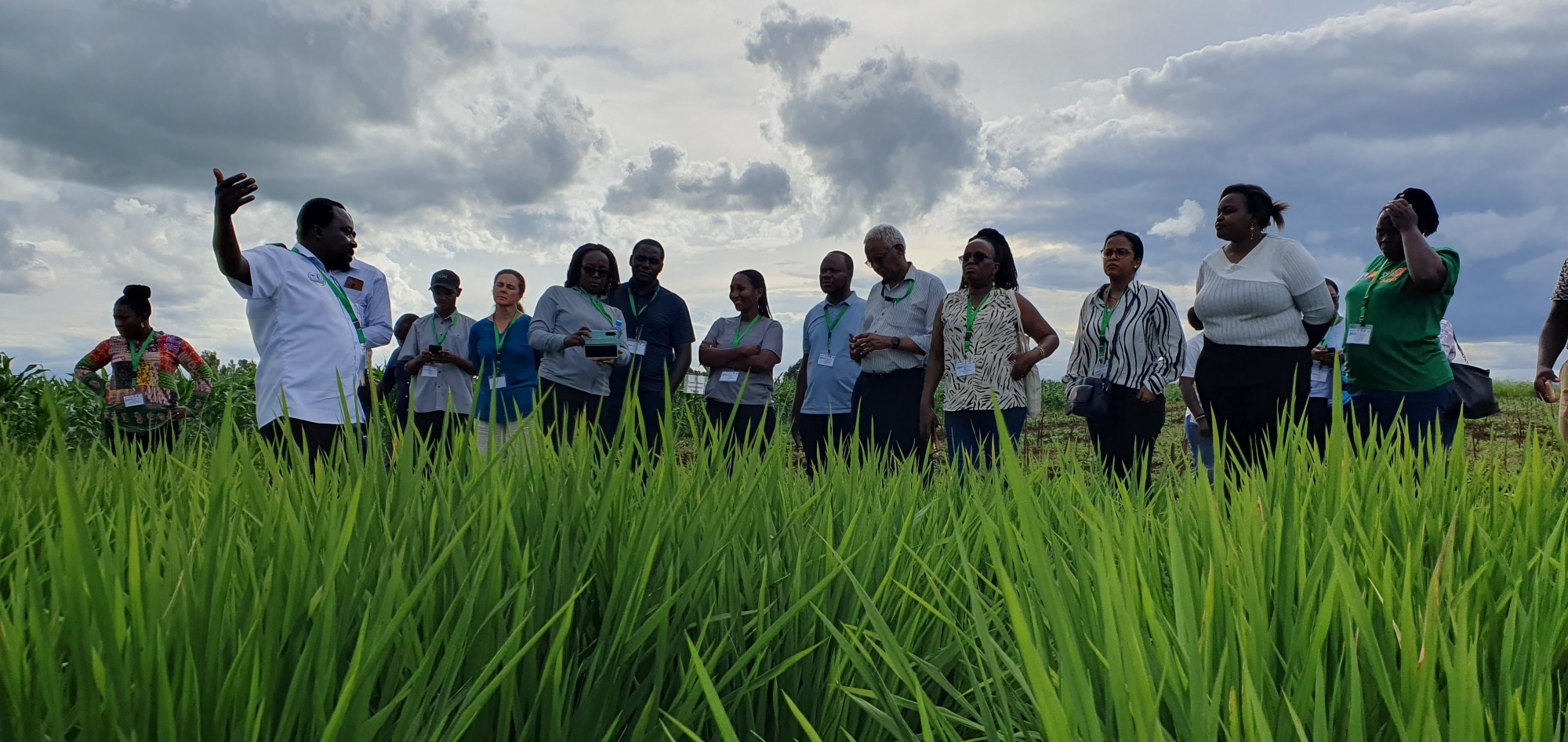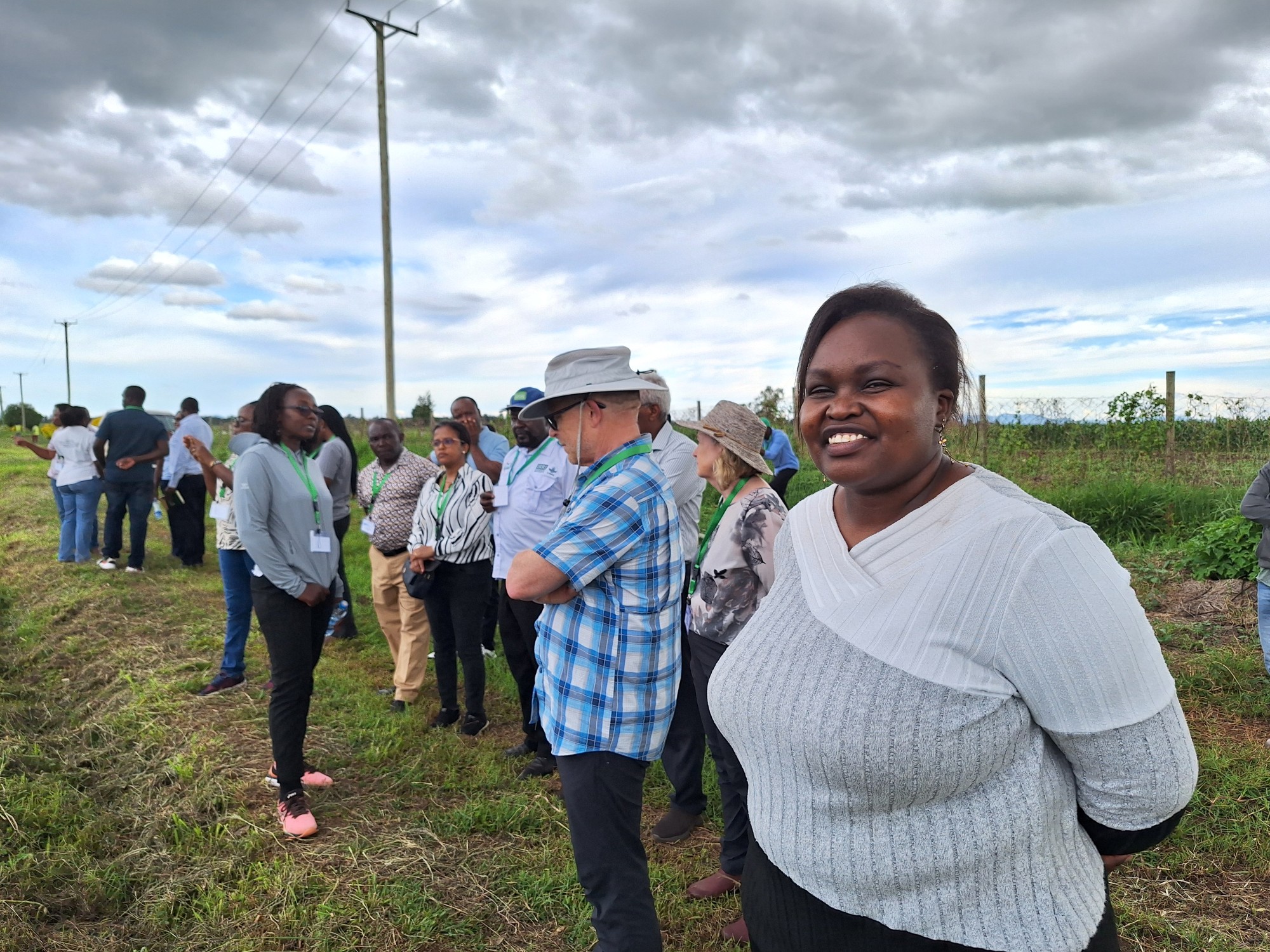Climate-resilient and eco-friendly rice for Africa welcomes KALRO into its fold

The Climate-Resilient and Eco-Friendly Rice for Africa project welcomed the Kenya Agricultural and Livestock Research Organization (KALRO) as a key research partner in Mwea, Kenya, on May 8, 2025. Leveraging the project’s existing partnerships with the University of Copenhagen (UCPH), Sokoine University of Agriculture (SUA), the Tanzania Agricultural Research Institute (TARI), KALRO, and IRRI, the project will develop high-yielding and stress-tolerant rice varieties to meet increasing demand and help farmers equitably adapt to climate change.
“In African agriculture, climate mitigation and adaptation are inseparable. Reducing greenhouse gas emissions while building resilience to drought, floods, and heatwaves ensures that today’s solutions safeguard both the planet’s climate and the livelihoods of future generations.”, said Principal Investigator Dr. Ole Pedersen of the UCPH.
In sub-Saharan Africa (SSA), rice demand and consumption are increasing due to population growth, urbanization, and changing dietary preferences. Because of this, African governments are planning a vast expansion of rice cultivation, coupled with intensification to relieve food insecurity and reduce reliance on rice imports. However, rice varieties common in most markets are old and low-yielding. More importantly, due to the changing climate, stresses such as drought, flooding, pests, and diseases are intensifying and becoming increasingly frequent, leading to poor and unstable productivity, and lower income for rice farmers.
In Kenya, domestic rice consumption is vastly exceeding the rice self-sufficiency rate, which is below 20%. The country also faces multiple climate shocks, with drought being the most severe in rainfed ecosystems. Similar instances of flooding were observed in Tanzania in the past few years. In 2024, Tanzania recorded USD 69 million crop losses due to El Niño driven floods.
“Conventional rice production is associated with high methane emissions, a potent greenhouse gas with significant impacts on climate change. Therefore, it is important to explore low emission rice cultivation method to reduce the impacts of climate change on rice-based agri-food systems.”, explained IRRI Country Representative for Tanzania Dr. Pauline Chivenge.

The newly launched project will also address social and livelihood inequity in rice-based farming systems. “Integrating gender equity into the project is vital for ensuring that agricultural innovations in drought-prone areas of Kenya and Tanzania are effective, inclusive, and sustainable.”, said IRRI Country Representative for Uganda Dr. Jummai Yila. Women and all other marginalized groups are key contributors to rice farming, often managing production while facing systemic barriers such as limited access to land, credit, inputs, and decision-making platforms. “Ignoring these disparities risks developing solutions that fail to meet their needs, reducing adoption and impact.”, she continued.
“Rice is quickly becoming a key food and cash crop in Kenya. This project creates an opportunity to enhance the capacity of rice researchers as well as strengthen rice research at KALRO." shared KALRO Scientist Dr. Emily Gichuhi. By providing training and research opportunities for Tanzanian and Kenyan scholars, the Climate-Resilient and Eco-Friendly Rice for Africa project aims to address these challenges and contribute to the development of future generation of rice researchers and leaders in the region. “Capacity-building initiatives are being designed to promote gender parity, with specific targets for the enrollment of women in degree programs, technical training, and leadership development opportunities.,” Dr. Yila elaborated as she discussed how they plan to promote gender equity. “At the community level, inclusive decision-making platforms would be organized to ensure women’s voices shape project direction, aiming to shift perceptions and promote shared responsibilities in agriculture and household life.”, she added.